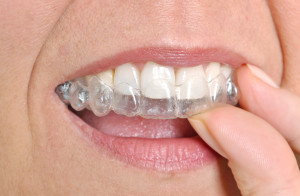 If you’re at the point where you’re shopping for night guards, you’ve probably been through some rough nights. A night guard will protect your teeth from the grinding your jaw is unconsciously doing. But it may not make you sleep any better. So let’s take a look at all the ways to manage your grinding problem.
If you’re at the point where you’re shopping for night guards, you’ve probably been through some rough nights. A night guard will protect your teeth from the grinding your jaw is unconsciously doing. But it may not make you sleep any better. So let’s take a look at all the ways to manage your grinding problem.
Stress Reduction
The most common reason behind teeth grinding at night, is your stress level during the day. Stress can be stealthy. Sometimes we are too busy putting out fires—literally and figuratively—to be in touch with how much stress we are experiencing during our waking hours. Even thinking about the future and how to deal with potential problems—that’s right, problems that haven’t even happened or may never happen—can cause anxiety.
When we fall asleep, our brain doesn’t. It kicks into gear, filtering all the input from the day and—more or less—helping us form clearer ideas for the next day. That’s a significant amount of mental energy going on, and it needs to somehow release. Leg kicking, talking in your sleep, night sweats (in more extreme situations) and grinding your teeth are examples of release.
That means it could be well worth your time to have a stress relief routine before you go to bed. A warm bath. Meditation. Yoga. Whatever works for you, works.
Over-the-counter Mouthguard
Whether you’re playing a contact sport or trying to save your teeth from whittling away, mouthguards that you can get very affordably at your local pharmacy or supermarket are a smart option. You’ll need to follow the directions on the packaging about how long to boil it and how to fit it to your teeth, but it’s fairly straightforward.
The downside to this solution is that these mouthguards are made to fit everybody, which means they’re not really the perfect fit for just about anybody. So you may find them less than comfortable.
Dental Mouthguards
Your dentist will have a more custom-tailored mouthguard option for you if you find the over-the-counter ones not comfortable enough for proper sleep. This will require an appointment and a fitting and some lab work, so it’s not your cheapest option, but it’s likely your more effective option.
Brush Up on Bruxism
Across the spectrum of healthcare issues—from diabetes to heart disease—grinding one’s teeth doesn’t always rank high on a list of concerns. Nonetheless, it can be a serious issue that leads to preventable pain and dental work. It even has a serious name: bruxism.
The National Institutes of Health says that 20 percent of adults suffer from it. And according to Dentistry Today, the pressure from grinding can exceed 500 pounds per square inch (psi). Normal chewing of hard foods is typically in the range of 5 to 44 pounds psi.
Think about that for a second. Chewing lasts only seconds to minutes. Grinding your teeth can last all night. That’s potential for some serious damage.







Leave a Reply